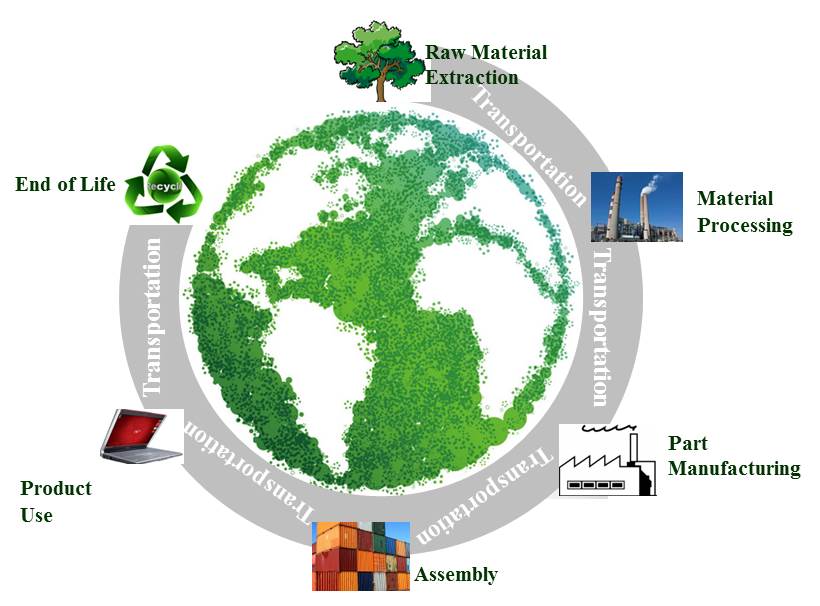Life Cycle Assessment

Life cycle assessment (LCA), also known as cradle-to-grave analysis is a technique to measure the environmental impacts of a product over its whole life cycle from materials extraction, processing, manufacture, transport, operation and maintenance. The embodied energy (carbon) of a building product is derived from the energy associated with all the steps over its life cycle.
Life cycle assessment provides accurate, complete estimation result of the embodied energy (carbon) of a typical building product. The full life cycle of a product refers to the process from raw material acquisition (“cradle”) to the final disposal (“grave”). For a construction activity, the full life cycle includes raw material extraction, construction materials manufacturing, transport, on-site construction, operation and maintenance of the building, demolition, and ends at disposal and recycling. However, it is difficult to study the full life cycle of a construction activity because the lifespan of construction materials is too long, and the uncertainties several decades later are difficult to predict. Because of these considerations, the boundary of this study is set as “Cradle-to-Site”, covering the partial product life cycle from raw material extraction until the product has reached the point of use (i.e., the construction site). Basically, all the CO2 emissions from raw material extraction, transport of raw materials, product manufacturing and product transport to construction site are considered in a “Cradle-to-Site” life cycle carbon measurement.